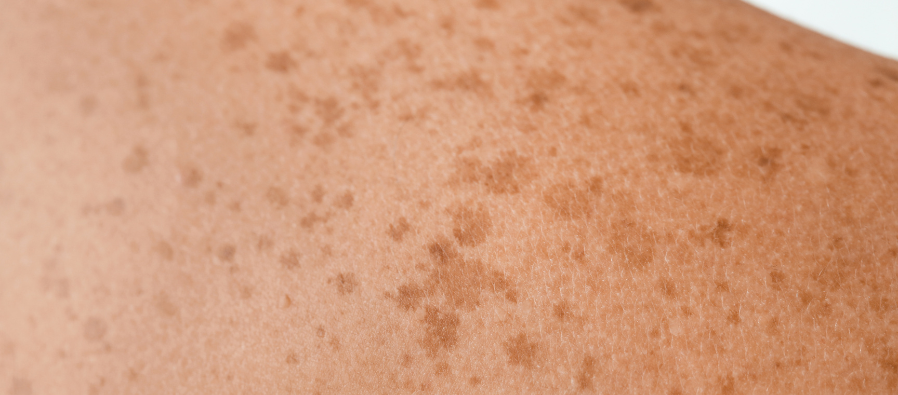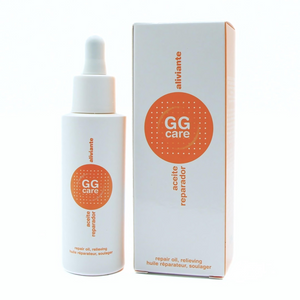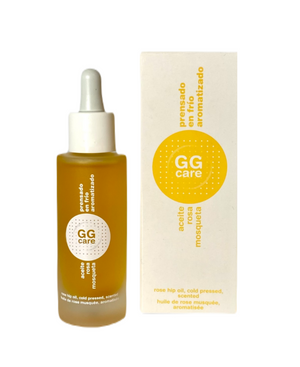
Spots on the skin ? Common causes and types
Compartir
skin spots are a common dermatological concern that can affect people of all ages and skin types. In this article, we explain the causes of spots on the skin and we explain some of the most common types.
Causes of spots on the skin
-
Sun exposure: Prolonged and unprotected exposure to ultraviolet rays (UV) can cause the appearance of spots on the skin known as solar lentigos. These spots usually appear in the areas with the greatest exposure, such as the face, hands and shoulders.
- Age spots: As we get older the skin becomes more sensitive and therefore we usually get spots due to wilting either due to sun exposure or due to poor care of the skin over the years, they usually appear after the age of 50.
- Birthmarks: Birthmarks are present at birth or appear shortly afterward. They can be classified into two categories: vascular birthmarks, caused by abnormal blood vessels, and pigmented birthmarks, caused by excessive growth of pigment-producing cells.
- Acne spots: Acne spots, commonly known as post-inflammatory hyperpigmentation (PIH), can occur after an acne breakout. They are flat or raised spots that result from increased melanin production in response to inflammation. If you want to know more about acne in adults, we recommend you read another article titled; Hormonal acne in adults, what it is and how to prevent it.
Common types of skin spots
- Freckles: They are small and flat spots of a cinnamon or brown sure. They are usually genetic and are accentuated by sun exposure.
- Moles: Also known as nevi, they are common skin growths composed of melanocytes. They can be brown, black or flesh-colored, and vary in size and shape. While most moles are harmless, changes in size,shape or color should be monitored.
- Lentigos or liver spots: are flat spots , tanned or brown that often appear on areas exposed to the sun. They are associated with aging and prolonged sun exposure.
- Cherry angiomas: cherry angiomas are small bright red spots caused by overgrowth of blood vessels on the skin. They are usually harmless and can appear anywhere on the body.
Skin spots can be a dermatological concern for many people, but in most cases they are harmless.However, it is essential to monitor with your dermatologist for any changes in the size, shape or color of spots on the skin, as they can sometimes indicate underlying health conditions. Protect skin from excessive sun exposure, practicing good skin care habits and consulting a doctor when necessary can help maintain healthy skin and reduce the appearance of spots. At GGcare we recommend using Colored, illuminating moisturizing cream as it provides hydration and regeneration. The color of this cream helps to unify skin tone and adapts to all skin tones, in addition to providing lighting that helps you look healthy. It has sun protection 20 SPF so your face will not be as affected by long-term sun exposure. If you have concerns about spots on your skin, we recommend consult a dermatologist for an accurate diagnosis and appropriate treatment options.





